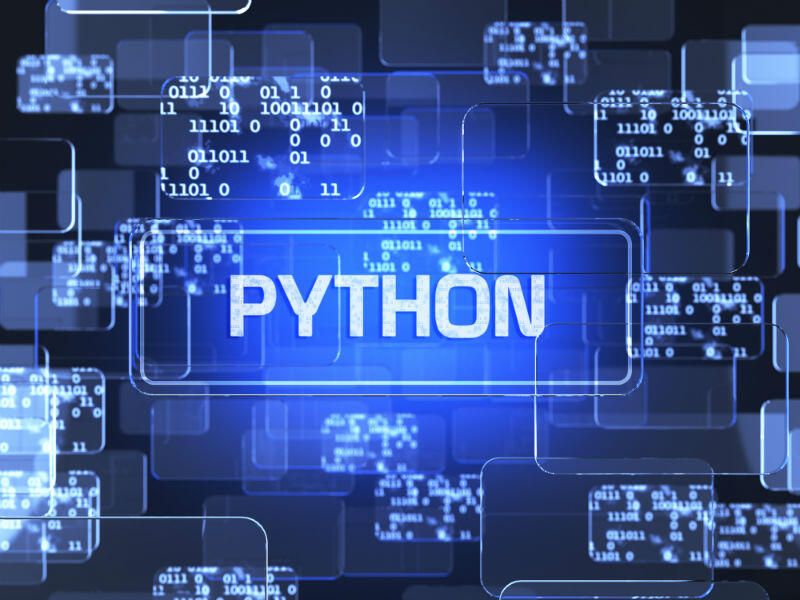
Benefits of Python as a Programming Language
Python is one of the most flexible and understandable programming languages. This language, unlike others, has many strengths that solve certain problems in specific business niches. The demand for Python in the market has become a common phenomenon because several features and functional universality allow its usage in different areas. Nowadays, Python developers are in high demand in the labor market. So, sometimes, it’s easy to outsource some of the tasks instead of increasing your in-house team of programmers.
Why Python’s So Popular?
A fast-growing number of users and communities of this language is due to its ease of learning. It is because the language is easy to memorize, and the syntax is very simplified. It is also close to the natural language, English, which makes it easy to learn. Even if the user is far from a programming field, it will not be difficult to understand the lines of simple code.

Another reason for the popularity of Python is its versatility. For instance, it is used in web development, Data Science, automation systems, game development, databases, machine learning, neural networks, deep learning, and applications – the scope of its application is truly boundless. The community and number of users who want to learn Python is growing daily. It is also worth mentioning many libraries for solving problems (NumPy, Pygame, Pandas, Django, etc.).
Pythons Strengths
Simplicity
I can recommend Python as the first programming language to learn. Its clear syntax and human-like code language make it an easy language to start. Many libraries and frameworks make your first steps in ML superfast and productive. Check some of the most popular in this post.
For example, from a programming point of view, it does not need to specify a data type enough to declare a variable. Python will understand the data type by itself, whether it’s an integer, a logical value, or something else. It is a huge advantage for beginners. Unlike C++, Pythons syntax is simple, and the code is easy to read.
Versatility
In Python, there are so many libraries with different functionality. For problem-solving, you can use ready-made libraries in Python. It makes it one of the most popular languages.
For example,
1) For multidimensional arrays and high-level matrices, you can use NumPy
2) For game development, use Pygame.
3) For engineering calculations, SciPy will do.
4) For research, analysis, and manipulation of data, you can use Pandas.
5) To work with artificial intelligence, explore Scikit – Learn.
Example of Using
As an example of an application, you can take the experiences of giant companies like Spotify or Netflix. We know these companies for their algorithms that create recommendations based on data analysis and previous user views.
Netflix collects information about the time of day the user was active and the movies they were searching for. After the data is sorted by genre, category, actor, year released, etc. The algorithm then processes this data and comes up with the most likely recommendations the user might like. Some libraries in the Python language can be used for that purpose and allow you to make predictions very precisely.
Applications
Web Development
The website’s server-side can be written in Python, not in pure Python, but in frameworks such as Django or Flask. These frameworks simplify the process of generating HTML pages, which the user sees in his browser, database queries, and address processing.
Database
Python is used to interact with any database. In particular, the working environment of the language contains a programming interface for working with databases directly in the script via SQL – queries. Code in Python requires only minimal modifications if you want to use it for the database of Oracle and MySQL.

System Programming and Administration
Python has interfaces to manage the services of various operating systems in which it runs Linux, Windows, etc. It is convenient to write portable PC applications in this language, so Python has been used by system administrators to write their programs for a long time.
Machine Learning
Machine learning involves using not only the core Python toolkit but also frameworks and additional libraries specifically created for ML. For example, TensorFlow and Scikit – learn. Python is used to write functionalities that allow voice and face recognition. It is used by deep learning and neural network developers.
Automation of Business Processes.
One of the most popular IT niches where Python is used is writing short scripts that automate several work processes and standard procedures. For example, it could be a small code that automatically handles incoming emails: it sorts them according to the specified key phrases and simplifies the user’s life.
Overall
Python is a high-level programming language. The scope of its application is extensive. When choosing Python to solve specific problems, you can gain a quick start for your project, support from the professional community, and a vast arsenal of frameworks to implement the idea, be it ML modeling, web development, or complex software system such as Python is a general-purpose language with many advantages.




